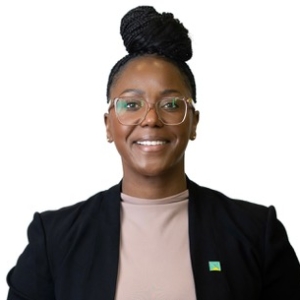Michelle Lewis, SSW, BSW, MSW, RSW
Michelle Lewis is a dedicated Registered Social Worker (RSW), educator, and clinical leader with over a decade of experience supporting individuals and communities impacted by complex physical and mental health conditions. With expertise in addictions, homelessness, and intersecting social issues, Michelle has provided compassionate, evidence-based care in both community and clinical settings.
Michelle holds a Master of Social Work (MSW) degree from the University of Toronto, specializing in Health and Mental Health, a Bachelor of Social Work (BSW) with a minor in Psychology from Toronto Metropolitan University (formerly Ryerson University), and a Social Service Worker (SSW) diploma from Humber College. Throughout her career, she has held progressive roles including case manager, group facilitator, counselor, program manager, and post-secondary sessional instructor.
Currently serving as the Director of Clinical Services at a community-based mental health organization in the Greater Toronto Area (GTA), Michelle provides strategic leadership, program development, and clinical oversight to ensure high-quality care for marginalized and underserved populations. Her work is rooted in health equity, anti-oppressive practices, and dismantling systemic barriers to accessible healthcare for all.
Michelle’s passion for education and mentorship has shaped the next generation of social services professionals. With over 15 years of experience teaching workshops and university and college courses in social work, her teaching philosophy emphasizes critical thinking, professional development, and ethical practice. She believes that social work is a deeply relational field that requires not only intellectual understanding but also emotional intelligence, self-awareness, and adaptability.
In the classroom, Michelle strives to create a dynamic learning environment that supports diverse learning styles, balancing didactic instruction with experiential and participatory approaches. Her classes include case-based discussions, reflective exercises, simulations, and collaborative learning opportunities, encouraging students to apply theoretical concepts to real-world practice. Accessibility and inclusivity are central to her teaching, and she encourages active dialogue, critical self-reflection, and the integration of students’ lived experiences into the learning process.
Michelle’s ultimate goal as an educator is to empower learners with the knowledge, skills, and ethical foundation needed to navigate the complexities of the social services field with confidence and compassion. By fostering a supportive learning environment, she inspires students to become thoughtful, competent, and resilient professionals dedicated to social justice and systemic change.
